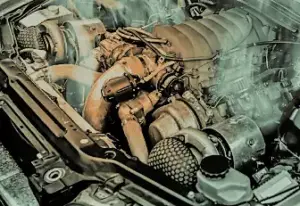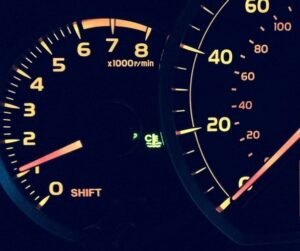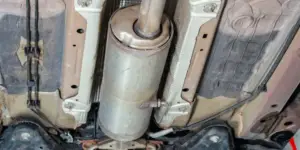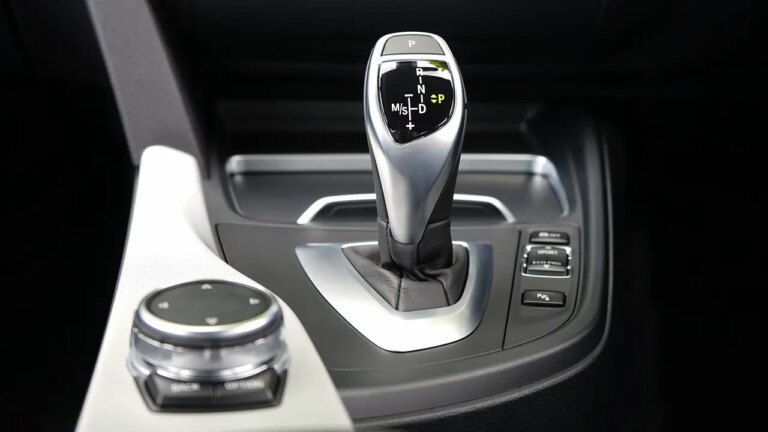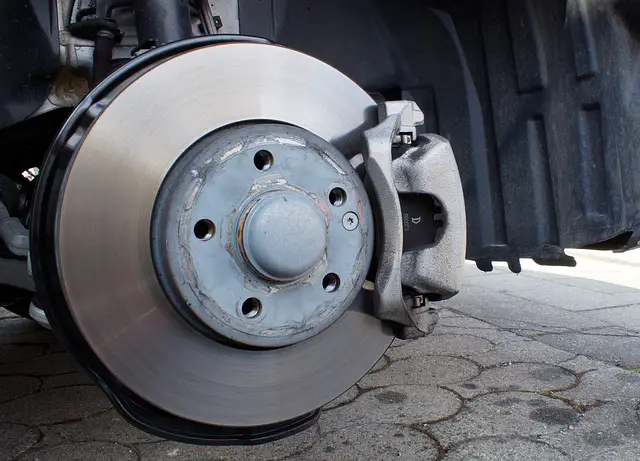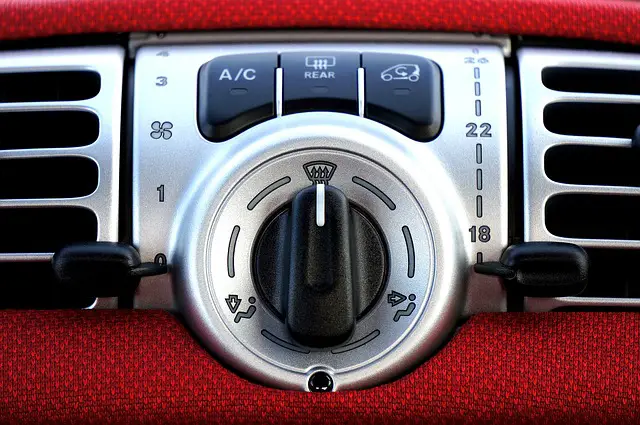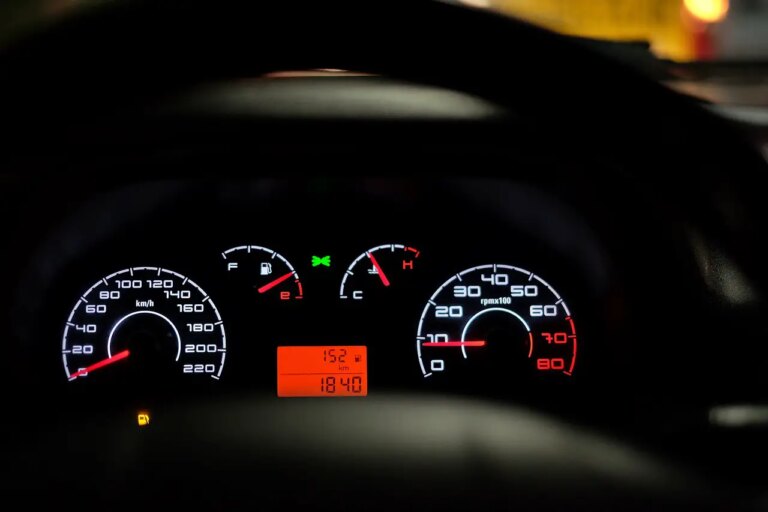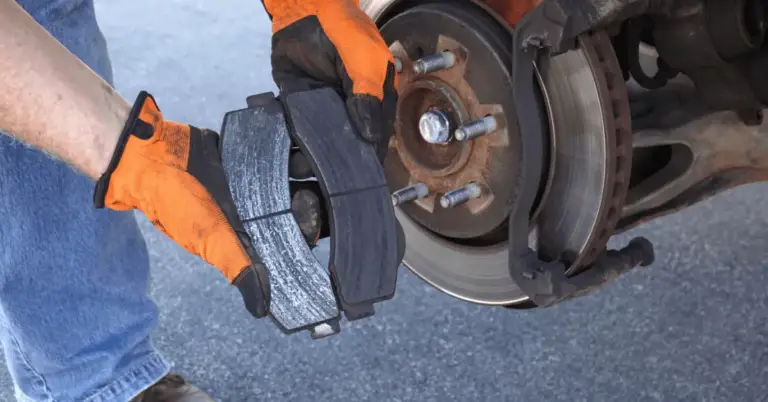There are many reasons why your car might smoke at high RPM. The color of the smoke and the type of vehicle you are driving will determine the cause.
Here we will look at the causes of different color smoke and the costs of each repair.
We will also break down the differences between petrol and diesel engines and what different color smoke may mean for your engine.
Before we get into detail, if your car is smoking at high RPM, it means that an existing issue is being exacerbated. As you accelerate, all your cars system are being asked to work harder and under increased pressure. These include the engine, air intake, and coolant system.
Let’s get into detail.
Diesel Engine Is Blowing Black Smoke Under Acceleration
This means that your vehicle is getting too much fuel.
Worn seals could cause this in your injector pump, poor injector pump timing, or worn injectors. You may notice a decrease in your car’s MPG. These factors are rarely present under normal RPMs, but accelerating hard puts the seals and injectors under more pressure and increases the likelihood of it happening.
Alternatively, it could be because your engine is not getting enough air. Check or replace your air filter if it’s dirty.
Clean your MAF sensor also.
If your turbocharger is louder than usual, you have a boost leak somewhere. Check your intake hoses for leaks and your intercooler for holes, and ensure all the clamps are tight.
Though your vehicle is still safe to drive, it will use more fuel than it would under normal conditions.
Repairs Costs
Injector Pump – up to $5000 or more
Injector Pump Timing – $200 – $300
Injectors – $2500 – $3500
Intercooler Replacement – $300 or more
Intake pipes – $50 – $200
Petrol Engine is Blowing Black Smoke at High RPM
This means your fuel mixture is too rich. If you have a carburetor – rare these days- this means you need to adjust your fuel mixture.
Also, check that your choke is not staying on.
If you have a fuel-injected car, it could be several things causing your problem.
Leaking or dirty injectors will cause black smoke as the fuel is not sprayed uniformly into the cylinders to allow optimum combustion. As more fuel is burned at higher RPM’s this will be more noticeable when you floor the pedal.
Injectors can be cleaned or replaced. There are a number of fuel additives that you may consider trying for the budget conscious.
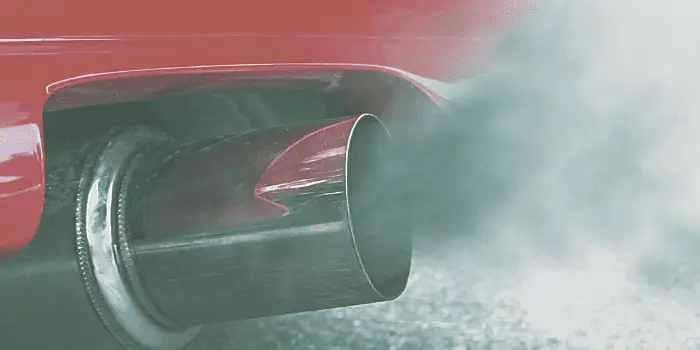
It is a good idea to check your fuel pressure regulator too when diagnosing fuel injector faults.
O2 sensors. Modern vehicles will have an engine light come on if an oxygen sensor is not operating correctly. Older vehicles will require a scan tool to diagnose correctly.
MAF sensor. Measures the amount of air entering the engine. As they are right next to the air filter, they are prone to collecting fine dust particles.
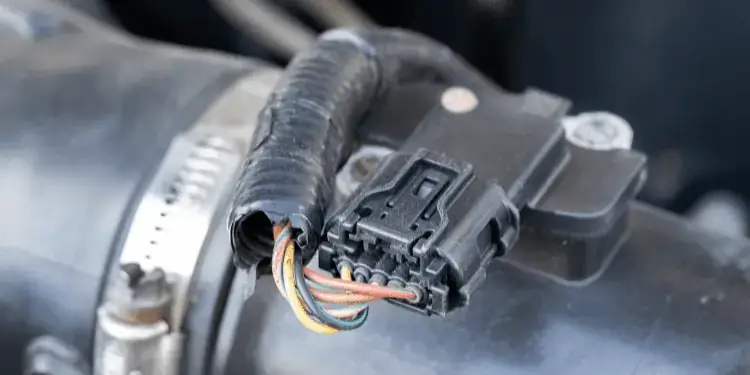
These can be cleaned with MAF sensor cleaner. Only spray the cleaner in the direction the air travels and dry properly before reinstalling.
Also, check that your air filter is not blocked.
Repair Costs
- Carburettor timing – $100-200
- Injector cleaner – $30
- Injector replacement – $30 – $200
- Oxygen Sensor – $140 – $300
- MAF sensor – $250 – $700
- Air Filter – $30 -$150
Diesel Engine is Blowing White Smoke
If you have a DPF – diesel particulate filter – fitted to your vehicle, then it is likely your DPF is blocked. This will mean a visit to your local dealer or repair shop for diagnosis and repair.
Incorrect injector timing can cause white smoke as the diesel fuel is not burning correctly.
Poor engine compression will either be engine wear or incorrect valve adjustment. Adjust your valves and check your engine compression.
If your valve adjustment is correct and engine compression is low, your engine will require a rebuild.
White smoke can also be an indicator that your engine is leaking coolant into the combustion chamber. This is more likely to happen at higher RPMs.
If left, this will cause your engine to fail completely. If your coolant is low and you can’t see any leaks have your head gasket checked.
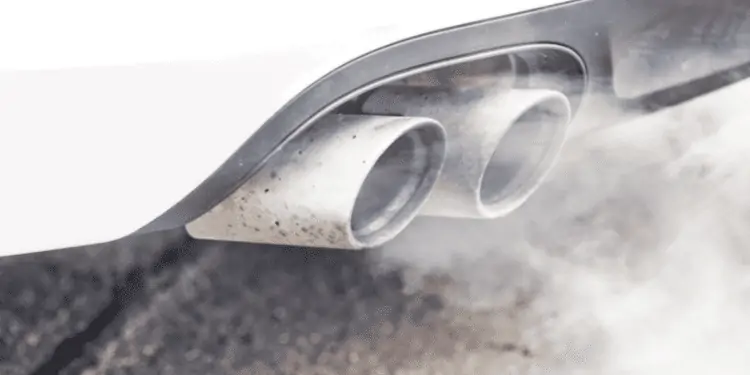
Petrol Engine is Blowing White Smoke
Check for the same symptoms as for a Diesel engine.
Some petrol vehicles have a vacuum actuator on the automatic transmission. If this diaphragm has a hole in it, it will suck fluid into your engine’s intake, causing white smoke.
Repair Costs
- DPF cleaning – $200 – $500
- DPF replacement – $3000 or more
- Valve adjustment – $250 – $600
- Engine rebuild – $ 2500 or more
- Head gasket – $2500 or more
Blue Smoke
Blue smoke is a sure sign that your engine is burning oil. This can either be coming from your piston rings, head gasket, or valve stem seals.
The easiest to diagnose is the valve stem seals. Your car will smoke after sitting idle -such as at traffic lights for a couple of minutes- and then accelerating. This also happens a lot when the engine is cold as the rubber seal will contract slightly and let the oil into the combustion chamber. See more symptoms here
The smoke will clear after a moment. This repair will require special tools to complete. If your head gasket is leaking or the oil ring on your pistons are worn, then your engine will require a rebuild.
Repair Costs
- Valve stem seals – $300-400
- Engine rebuild – $2500 or more
Conclusion
As you’ve read, there are many different causes of increased smoke at high RPM. The key is to be methodical in your approach or get your car to a mechanic.
Any excess smoke when you accelerate is a sign that there is an underlying problem that won’t fix itself. In fact, it will only get worse.
If early diagnosis is sought, often the cost of repair is lower. Ignoring the signs can result in a bigger bill later on.


